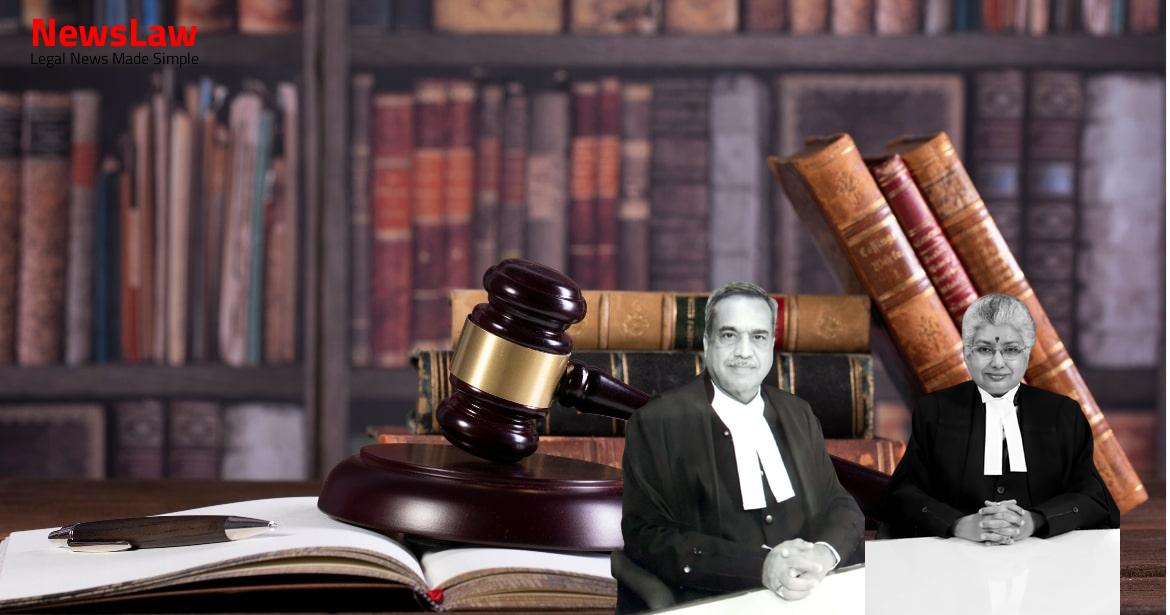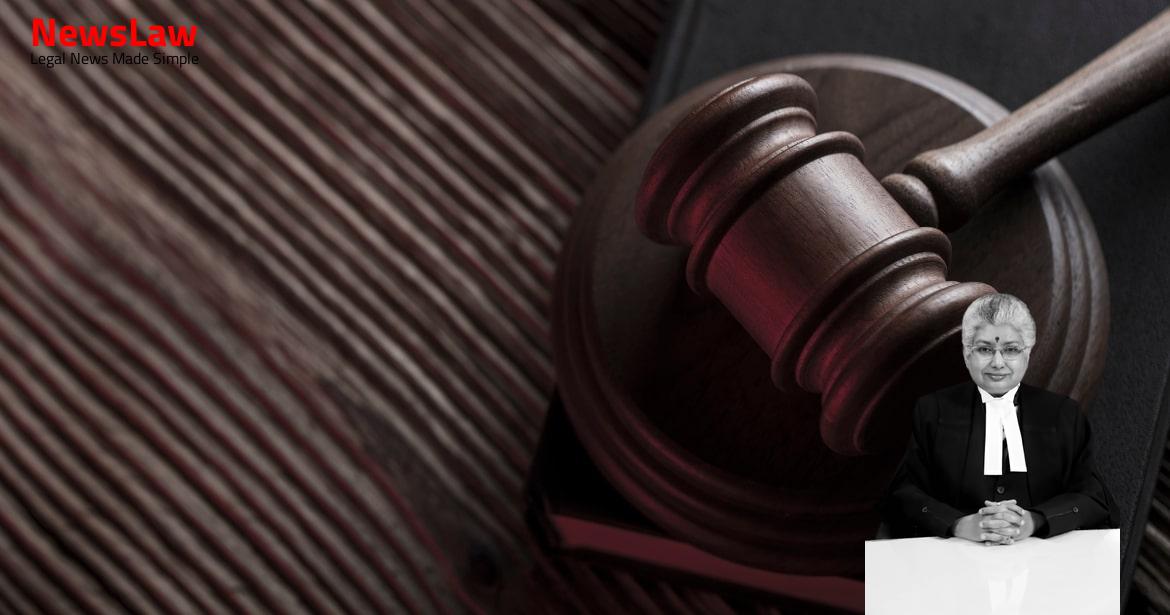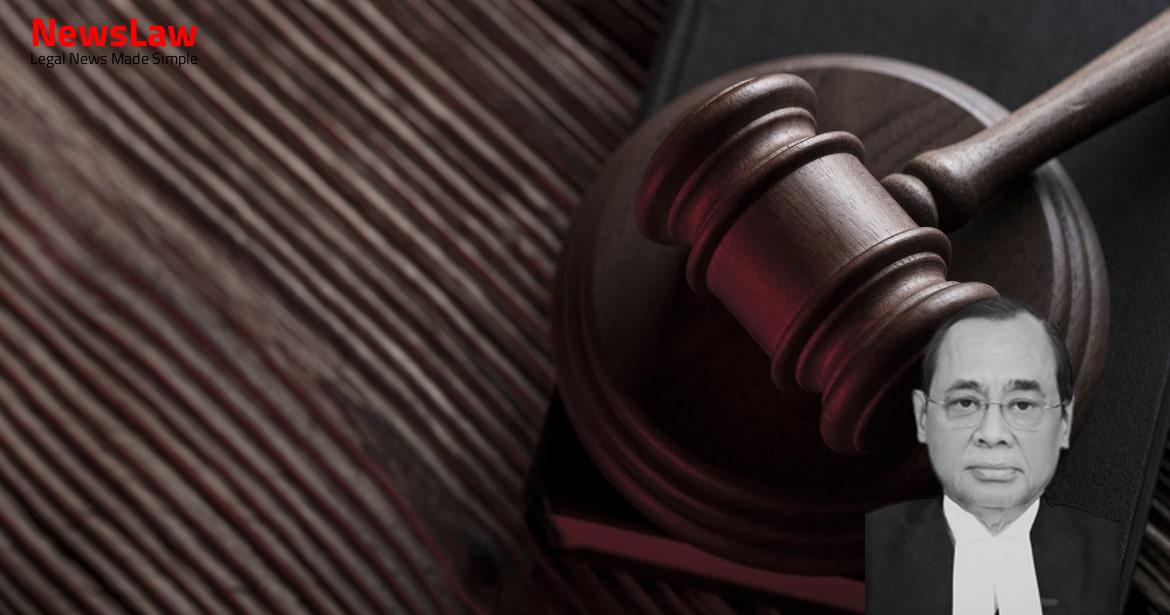A significant judgment by the Supreme Court delves into the judicial review of selection process rules, impacting various stakeholders involved in recruitment processes. This case involves a complex legal history, with multiple proceedings challenging the selection rules. The Court’s ruling emphasizes the impermissibility of altering rules post-selection process completion, ensuring fairness and adherence to established norms.
Facts
- AICTE clarified no partial approval of technical courses will be given to universities to avoid confusion among stakeholders.
- Prior to the filing of CWJC No 3411/2022, the High Court was already hearing several analogous writs challenging different provisions of the Rules.
- BTSC was permitted to continue the selection process but results were to be kept in a sealed cover pending the outcome of the proceedings.
- The State Government decided to cancel the process of recruitment to the post of Junior Engineer with reference to the advertisement issued on 08.03.2019.
- The High Court directed the BTSC to withhold the declaration of results until leave is granted by the Court and to cancel the Junior Engineer Recruitments Rules.
- Rule 4(A) of the Rules granting 40% institutional reservation to diploma holders from State-run Polytechnic Institutes was found to be arbitrary and unreasonable.
- The BTSC was directed to prepare a fresh select list granting 40% institutional reservation to diploma holders from any polytechnic institute recognized by the AICTE and affiliated with the State Board of Technical Institutions, Bihar.
- Universities have an obligation to conform to the standards and norms laid down by the AICTE.
- AICTE may cause an inspection of the university to ensure coordinated and integrated development of technical education.
- The Writ Petitioners sought the quashing of Rule 9(1)(iii) of the Rules as inconsistent with other statutory provisions and the judgment of the Supreme Court in Bharathidasan University & Anr. vs AICTE & Ors.
- AICTE public notice dated 09.02.2022 clarified that universities do not require prior approval to commence new departments or courses in technical education.
- The matter began with the issuance of Advertisement No 01/2019 by the BTSC inviting applications for Junior Engineer vacancies across state departments.
- The Advertisement specified educational qualifications required for the post of Junior Engineer (Civil).
- Private Respondents in the present appeal were the Writ Petitioners before the High Court.
- BTSC found applicants ineligible if their institutions were not approved by AICTE.
- Decision dated 25.01.2023 brought on record before the High Court.
- State Govt. permitted to implement decisions dated 25.01.2023.
- Nothing remained in the matter and the Court concluded the same.
- Hearing of the application adjourned after Advocate General informed about State Govt. contemplating a review.
- Govt. of Bihar convened a high-level meeting on 25.01.2023 with Secretaries from various departments.
- Meeting to consider legal issues from pending litigations, especially regarding Rules and Advertisement.
- Decision made to cancel the appointment process under the Advertisement and initiate approval for amended Rules.
Also Read: Justice Prevails: The Case of Bhagwan Singh vs. Sukh Pal Singh
Arguments
- Learned Senior Counsels for the Appellants argued that the Writ Petitioners, having participated in the selection process under the Advertisement, are bound by the doctrine of acquiescence and cannot challenge the eligibility criteria retroactively.
- The Appellants argue that the cancellation of the selection process after the Final Select List was prepared is unjustified and amounts to changing the rules post-results declaration, citing relevant case law.
- They suggest that candidates likely to be over-aged with respect to the new advertisement should be given a one-time age relaxation in the proposed amendment.
- The Appellants, who succeeded in the selection process as per the Advertisement, claim a vested right to appointment and oppose being made to suffer due to circumstances beyond their control.
- They contend that the State Government’s decision lacked specificity on the concerns with Rule 9(1)(iii) justifying the process cancellation.
- Learned Counsel for the Writ Petitioners also argued against the cancellation of the selection process at a late stage, highlighting the significant impact on their interests.
- A request for reserving the right to challenge the proposed amendment was made by one of the contesting respondents.
- Learned Senior Counsel for the State, Mr. Patwalia contends that the State had the authority to scrap the selection process due to legal issues with the previously applicable Rules.
- The BTSC cancelled the Advertisement and fresh requisitions were sent for selection against 2252 vacant posts for Junior Engineers.
- The completion of the selection process was always subject to pending litigation, and the Final Select List was never considered or published.
- The High Court partially set aside the Select List, and no right to appointment vests with the Appellants as a result.
Also Read: Landmark Judgement in the Case of Money Laundering Offenses
Analysis
- The Administrative Committee changed the selection rules after the completion of the selection process, which is impermissible and deprives candidates of their legitimate rights.
- The High Court set aside the appointments made under Rule 4(A) of the amending Rules, 2017, directing the preparation of a fresh select list with 40% institutional reservation for diploma holders.
- Despite the Final Select List being prepared, the State Government seeks to scrap the entire process and start afresh.
- Nearly 9,187 Junior Engineer positions are vacant, affecting the state’s functioning.
- Court directs the preparation of a fresh selection list for vacancies advertised on 08.03.2019, following previous court orders and observations.
- Introduction of new requirements after completion of the selection process is likened to changing the rules of the game after it’s played, as per court precedents.
- The High Court permitted the State to amend the rules without providing reasons or adjudicating on the issues.
- Court ordered maintenance of status quo until the matter is resolved.
- Amendment to the Rules in 2017 limited eligibility based on AICTE approval, which contradicted the Court’s decisions and the AICTE’s stand.
- The Court emphasizes that changing selection rules after the completion of the process is impermissible.
- Govt. of Bihar has repealed existing rules and notified New Rules, including provisions for one-time age relaxations.
- The case has a complex history with multiple legal proceedings and court directives.
- The rules of the game cannot be altered by authorities in the middle or after the selection process has begun.
- Changing the criteria for selection after the process has started is unacceptable and impermissible.
- In this case, the rules were changed after the selection process was completed, which is even more serious.
- The state’s action of scrapping the entire selection process is not permissible.
- The prolonged pendency of the case has resulted in a large number of vacant posts, hindering the government’s functioning.
Also Read: Case of Vetrivel vs. State: Upholding Legal Integrity and Swift Justice
Decision
- The Court finds it appropriate for the State/BTSC to proceed with the Fresh Select List submitted in compliance with the order dated 19.04.2022 in CWJC No 7312/2021 which has attained finality.
- The Fresh Select List must be appropriately revised to include meritorious candidates who were found successful and were declared ineligible solely due to the 2017 amendment to the Rules regarding AICTE recognition.
- BTSC is directed to prepare the Revised Select List within 3 months of this Order.
- State Government must act upon the Revised Select List submitted by the Commission within 30 days thereafter.
- Two weeks’ time granted to file a reply.
- The process of selection may continue, but the results cannot be declared without the Court’s permission.
Case Title: SHASHI BHUSHAN PRASAD SINGH Vs. THE STATE OF BIHAR (2024 INSC 763)
Case Number: C.A. No.-011030-011030 – 2024



